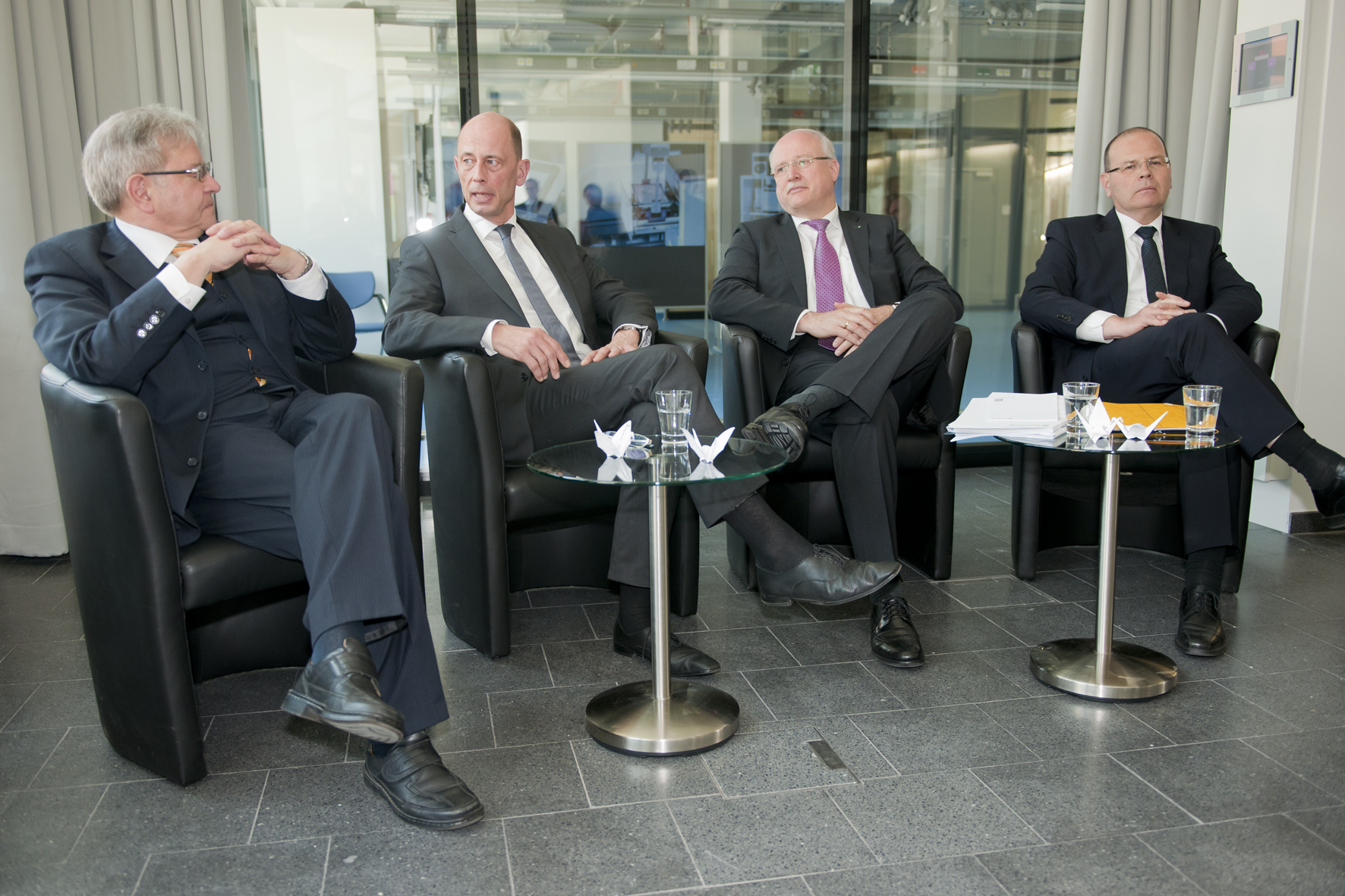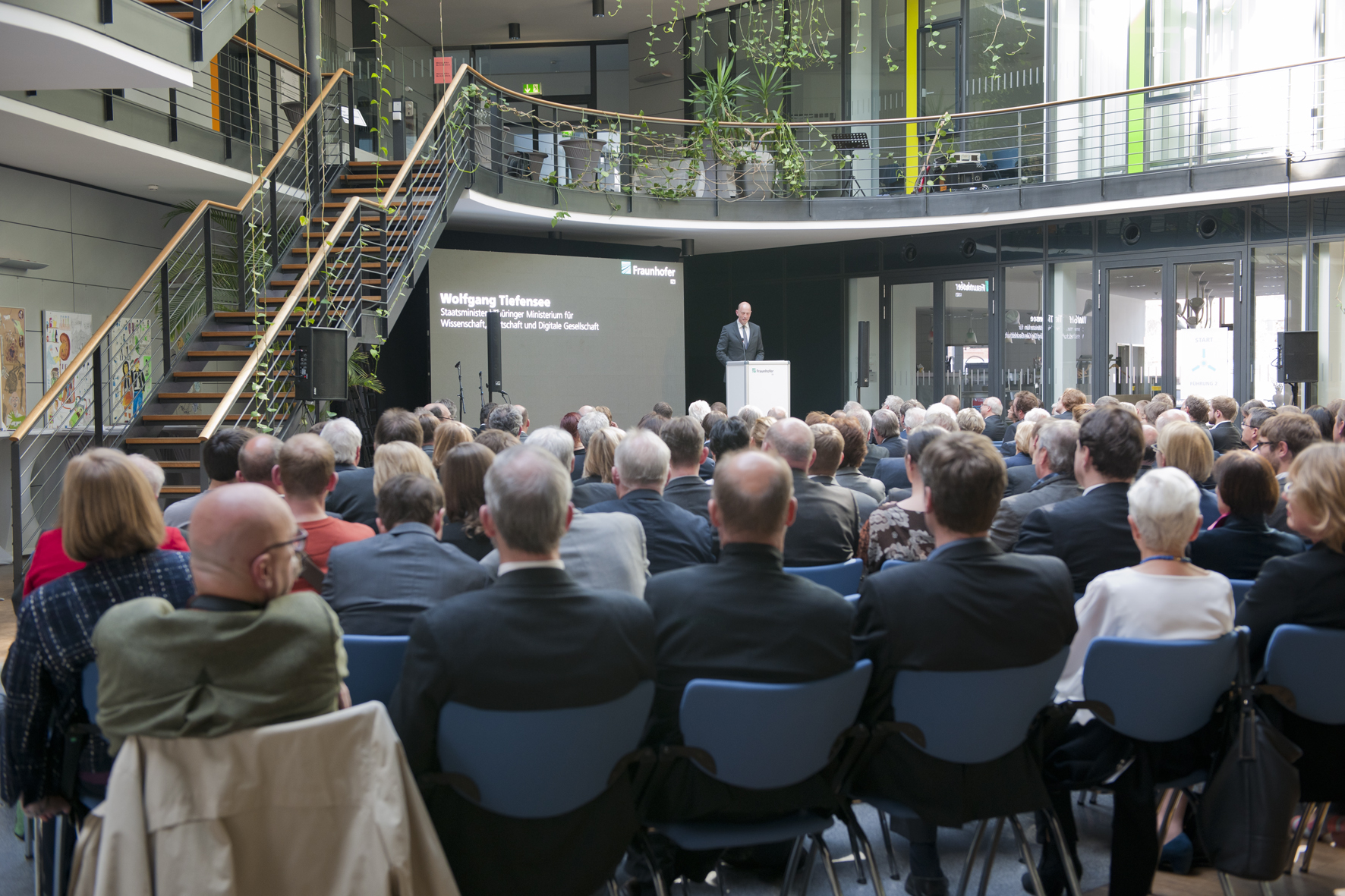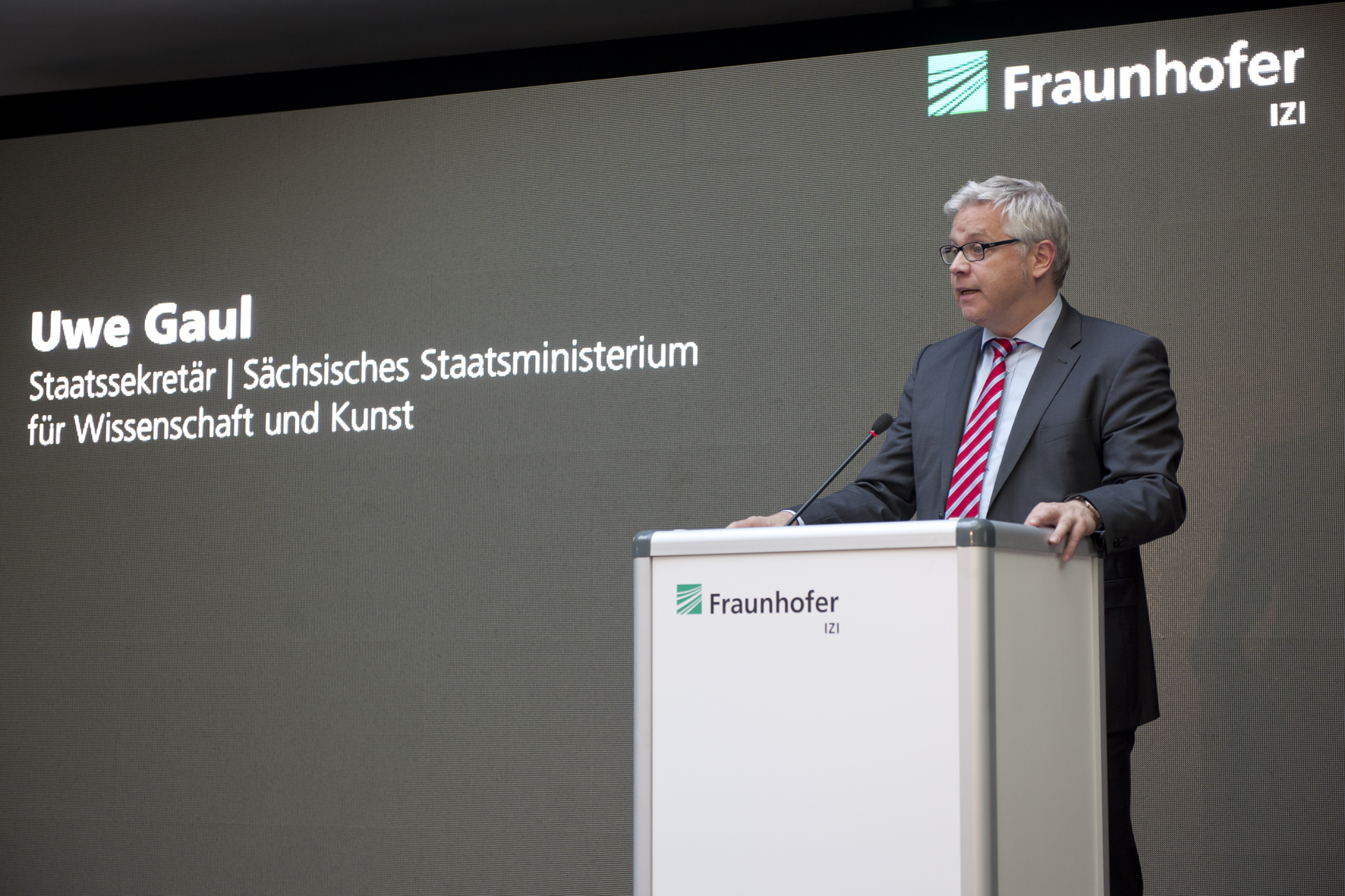Fraunhofer Institute for Cell Therapy and Immunology Celebrates Ten Year Anniversary in Leipzig
On April 29, 2015, over 300 guests from politics, business and science came together to celebrate ten years of Leipzig's first Fraunhofer institute. In all, the rapidly grown institute was given nothing but praise in every area. Over 500 members of staff work at the institute today. Almost 300 projects have been processed since being founded and more than 600 scientific papers have been published.



Precisely ten years ago, on April 29, 2005, Leipzig's first Fraunhofer institute was founded. The first laboratories were set up, the first offices finished and an initial clean room facility for the pharmaceutical manufacture of cell products was constructed in the Bio City premises. The institute reckoned with exactly 16 members of staff and a budget of around 500,000 euros in the first year. In “just” ten years, the Leipzig site has been expanded to include over 300 members of staff, with an additional 200 staff members now working in the three off-site departments in Potsdam, Halle and Rostock. They generated a financial value totalling 28.8 million euros in 2014. In June 2008, following less than two years of construction, the institute was able to move into its first own research premises on the former technical exhibition grounds, which featured state-of-the-art laboratories for cell and molecular biology work. The second building phase followed in December 2012, which included an additional clean room facility and special facilities for imaging technologies. The third building phase was completed in spring 2015 and opened as part of the anniversary celebrations. A third clean room facility, a special safety class 3 laboratory for infection biology projects and a transparent prototyping laboratory complete the research infrastructure at the Leipzig site. The entire complex now comprises a usable area of 8,700 m². The overall cost of all three buildings amounting to 57.4 million euros, of which 16.5 million euros covered the initial fittings and furnishings, was funded by the EU (60 %), the government (20 %) and the Free State of Saxony (20 %).
During the press conference, Director Professor Frank Emmrich thanked everyone who had helped finance and support the project. “A special thanks also goes to the City of Leipzig, which provided us with the premises in which we now research and work. The Leipzig Foundation for Innovation and Technology Transfer gave us additional support, particularly during the start-up phase, which was a difficult time for each institute.”
The Mayor of Leipzig at the time of the foundation phase, Wolfgang Tiefensee – now Minister for Economic Affairs, Science and Digital Society in Thuringia – still has fond memories of his congratulatory message for the opening back in 2008. His hopes for future cell division certainly rang true. During the press tour around the brand new building, he was one of the first people to witness the successful cell division, together with Mayor Uwe Albrecht and Fraunhofer Executive Board Member Professor Alexander Kurz.
During the afternoon ceremony, Professor Beate Schücking, Rektor of Leipzig University, highlighted the fruitful cooperation between the Fraunhofer IZI and Leipzig's higher education institutions – especially in the field of biotechnology and regenerative medicine. Through this cooperation, the institute fulfils a vital part of the City of Leipzig's cluster strategy. Mayor Uwe Albrecht, Councillor for Economic Affairs and Labour, underlined this in his welcome speech: “The institute makes an important contribution to the profile of the City of Leipzig. With its growth and international relationships, it helps connect Leipzig as a location for science, also beyond the borders of Germany and Europe.” With a total of 13 settlement and spin-off projects, the Fraunhofer IZI also makes a contribution to developing the location and Saxony's biotechnology industry. Besides commenting on the success of Saxony's biotechnology offensive, this fact was also reflected in the welcome speech given by State Secretary Uwe Gaul, who attended the ceremony in place of State Minister Eva-Maria Stange: “With its range of services and achievements in the area of life sciences, the Fraunhofer IZI complements one of the strongest Fraunhofer locations in Germany and, at the same time, helps close the gap between excellent foundational and clinical research in the field of regenerative medicine.”
Following the ceremony, the institute’s researchers gave guests an insight into the infrastructure and selected topics from the past ten years of the Fraunhofer IZI as part of guided tours around the two newest research buildings. Almost 300 projects have been processed by members of staff at the institute since its foundation. These projects focused on areas such as stroke research, developing new biomarkers for the early diagnosis of cancer, new drugs to treat chronic, inflammatory diseases, testing and manufacturing cell-based cancer therapies and developing new vaccines. Diagnostic procedures were also developed for human and veterinary medicine. The institute's latest research areas include Alzheimer's disease at the Halle site and the automation of bioprocesses in Potsdam.